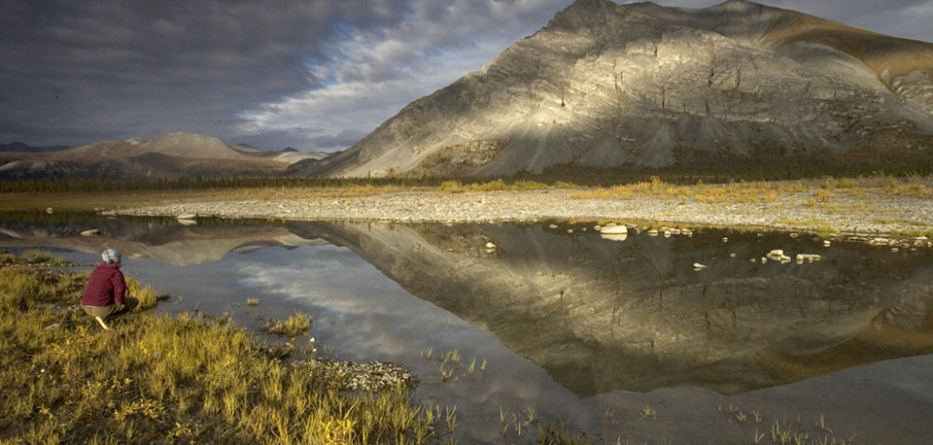Roddy Scheer & Doug Moss
EarthTalk
The Arctic National Wildlife Refuge (ANWR), located on Alaska’s northeast coast, has been a conservation-versus-development battleground for decades. The 1.5 million acre coastal plain at the foot of the Brooks Range where the land meets the Arctic Ocean is the crown jewel of the 19 million acre refuge—and a magnet for iconic Alaskan wildlife like caribou, polar bears and wolverines. But oil interests say the coastal plain is covering huge oil and natural gas reserves and should be drilled for the sake of the U.S. and Alaskan economies.
Some 250 wildlife species consider ANWR home, while another 180 species of birds migrate through every year (from all 50 states and beyond). The coastal plain itself is a birthing ground for the region’s iconic caribou herd and also provides safe haven and sustenance for hundreds of other marine and terrestrial species. Environmental advocacy groups cite studies showing that industrial operations would deter animals from the area, robbing them of one of the last protected areas to raise their young.
Beyond biological pragmatism, conservationists argue that opening the refuge up to drilling operations would set a dangerous precedent, potentially opening the door for similar pressures on federal wilderness areas and even in national parks. Some of the key defenders of ANWR include the Alaska Wilderness League, Defenders of Wildlife, EarthJustice and others.
The other side champions the economic potential of the region. Alaska Governor Bill Walker has strongly supported drilling operations in ANWR, a stance shared by Alaska’s federal representatives. A 2007 Yale study showed the potential for $374 billion dollars of oil beneath ANWR. This would be vital income for the state government, which relies heavily on oil and gas tax streams for its budget.
Alaska politicians say they need the extra revenue to pay to relocate climate refugees from villages inundated by rising seas. “We are in a significant fiscal challenge,” Alaska’s Republican governor Bill Walker told the BBC. “We have villages that are washing away because of changes in the climate.”
Nationally, supporters of drilling also cite economics: Every barrel of oil produced domestically puts tax money in the national coffers and creates local jobs. Shell has been the major commercial supporter of opening the refuge, though 78 percent of Alaskans share the sentiment. The state legislature has passed legislation opening ANWR to oil exploration—but it’s not theirs to decide since it’s on federal land.
But that doesn’t mean ANWR is safe from development. Inside the Washington DC beltway, the Republican-dominated House passed a dozen resolutions in support of opening it up to oil exploration in the last session alone—although Democratic filibuster efforts were able to block any such legislation. Meanwhile, Senate Democrats Michael Bennet (CO), Ed Markey (MA) and 32 Democratic co-sponsors introduced legislation last December calling for permanently designating the most sensitive sections of ANWR as wilderness off limits to development. With bigger fish to fry right now, lawmakers might not consider the legislation until a new President is in office, but backers of protecting ANWR can urge their Senators to support the bill via an easy-to-send customizable online form letter courtesy of the non-profit EarthJustice.
CONTACTS: ANWR, www.fws.gov/refuge/arctic; Alaska Wilderness League, www.alaskawild.org; Defenders of Wildlife, www.defenders.org; EarthJustice, www.earthjustice.org.
EarthTalk® is produced by Roddy Scheer & Doug Moss and is a registered trademark of the nonprofit Earth Action Network. To donate, visit www.earthtalk.org. Send questions to: question@earthtalk.org.






